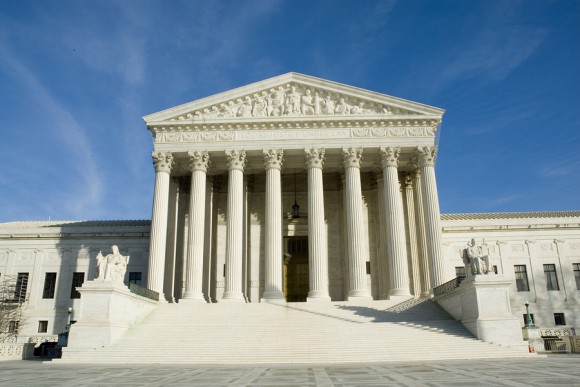In a decision that could further help companies limit damages in disputes with workers, the U.S. Supreme Court on Wednesday ruled against a California man who was the victim of an online scam and sought to bring claims against his employer on behalf of a group of workers instead of just himself.
In a 5-4 decision with the conservative justices in the majority and the liberals in dissent, the court overturned a lower court ruling that had allowed for the collective arbitration of the workers’ claims against lighting retailer Lamps Plus, Inc.
Lamps Plus warehouse employee Frank Varela filed a class action lawsuit on behalf of current and former employees accusing it of negligence, breach of contract and invasion of privacy after a hacker obtained his and other workers’ personal information from the company.
Varela said that after the breach a fraudulent tax return was filed in his name.
The Supreme Court agreed with the company, which had argued that the arbitration must be conducted on an individual basis only. The decision builds upon a series of others in recent years by the Supreme Court endorsing the power of arbitration and curbing class-action claims of various types.
Last year, in a blow to employee rights, the justices upheld the legality of compelling workers to sign arbitration agreements waiving their right to bring class-action claims.
The Lamps Plus case hinged on whether courts can allow arbitration as a group even if a contract does not explicitly provide for the collective arbitration of claims. Under a law called the Federal Arbitration Act, which governs dispute resolution proceedings through arbitration, they cannot, the court said.
Writing for the majority, Chief Justice John Roberts said class-wide arbitration “undermines the most important benefits” of individual-only proceedings envisioned by that law including lower cost and quicker dispute resolution.
Liberal justices on Wednesday said the ambiguous agreement should have been interpreted in the employees’ favor, as required by California law, and denounced the majority’s continued rulings against group legal actions.
Justice Ruth Bader Ginsburg criticized “how treacherously the court has strayed” from the principle that arbitration is about consent between parties, not coercion. Ginsburg said that in recent years the court has used the federal arbitration law to deny employees and consumers the power to counter violations of their legal rights by powerful entities.
Critics have said arbitration can make it tougher to root out misconduct such as discrimination within companies because the proceedings generally are kept private.
Businesses often aim to resolve claims through arbitration rather than litigation in court, which is harder to fight and can lead to hefty damages awards by juries. Businesses also prefer to handle disputes with individuals – instead of groups in class-action proceedings – to further minimize damages.
The San Francisco-based 9th U.S. Circuit Court of Appeals in 2017 ruled that the claims could move forward as a group, prompting the company’s appeal to the Supreme Court.
(Reporting by Andrew Chung; Editing by Will Dunham)
Related:
- Supreme Court Looks to Favor Business Arbitration with Individuals Over Courts
- Supreme Court Pro-Arbitration Ruling a Big Win for Employers
- Supreme Court Backs Employers on Forced Arbitration, Limiting Employee Class Actions
- Big Business the Winner in U.S. Supreme Court Class Actions
- Supreme Court Limits Out-of-State Residents Joining Class Actions
Was this article valuable?
Here are more articles you may enjoy.



 Viewpoint: Runoff Specialists Have Evolved Into Key Strategic Partners for Insurers
Viewpoint: Runoff Specialists Have Evolved Into Key Strategic Partners for Insurers  Jury Finds Johnson & Johnson Liable for Cancer in Latest Talc Trial
Jury Finds Johnson & Johnson Liable for Cancer in Latest Talc Trial  Lemonade Books Q4 Net Loss of $21.7M as Customer Count Grows
Lemonade Books Q4 Net Loss of $21.7M as Customer Count Grows  World’s Growing Civil Unrest Has an Insurance Sting
World’s Growing Civil Unrest Has an Insurance Sting 

